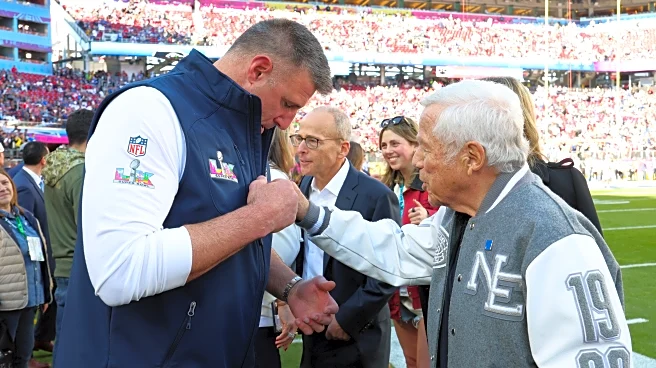What is the story about?
What's Happening?
USA Rice is supporting legislative efforts to hold trading partners accountable for actions that negatively impact U.S. farmers. The Prioritizing Offensive Agricultural Disputes and Enforcement Act, reintroduced by House Agriculture Committee member Rick Crawford, aims to establish a joint task force between the U.S. Trade Representative and the U.S. Department of Agriculture. This task force will focus on agricultural trade enforcement, particularly targeting India's trade-distorting farm subsidies. These subsidies have been calculated to exceed WTO limits, putting U.S. rice farmers at a competitive disadvantage. USA Rice has been advocating for a WTO dispute settlement case against India to address these trade distortions.
Why It's Important?
The legislation is crucial for U.S. farmers, especially those in the rice industry, as it seeks to level the playing field in international trade. India's subsidies have been a significant barrier, forcing U.S. farmers to compete unfairly. By addressing these issues through WTO dispute mechanisms, the U.S. can potentially secure better market conditions for its agricultural products. This move could lead to long-term policy changes in India, benefiting not only U.S. farmers but also global agricultural trade dynamics.
What's Next?
If the bill passes, the joint task force will begin working on developing priorities for agricultural dispute settlements. This could lead to formal WTO cases against countries like India, aiming to reduce unfair subsidies. The outcome of these disputes could reshape international trade policies, potentially improving market access for U.S. agricultural products.
Beyond the Headlines
The push for trade enforcement highlights the broader issue of government subsidies in agriculture, which can distort global markets. Addressing these subsidies is not only a matter of economic fairness but also of ethical trade practices. The U.S. aims to set a precedent for holding countries accountable to their WTO commitments, promoting a more equitable global trade environment.
















